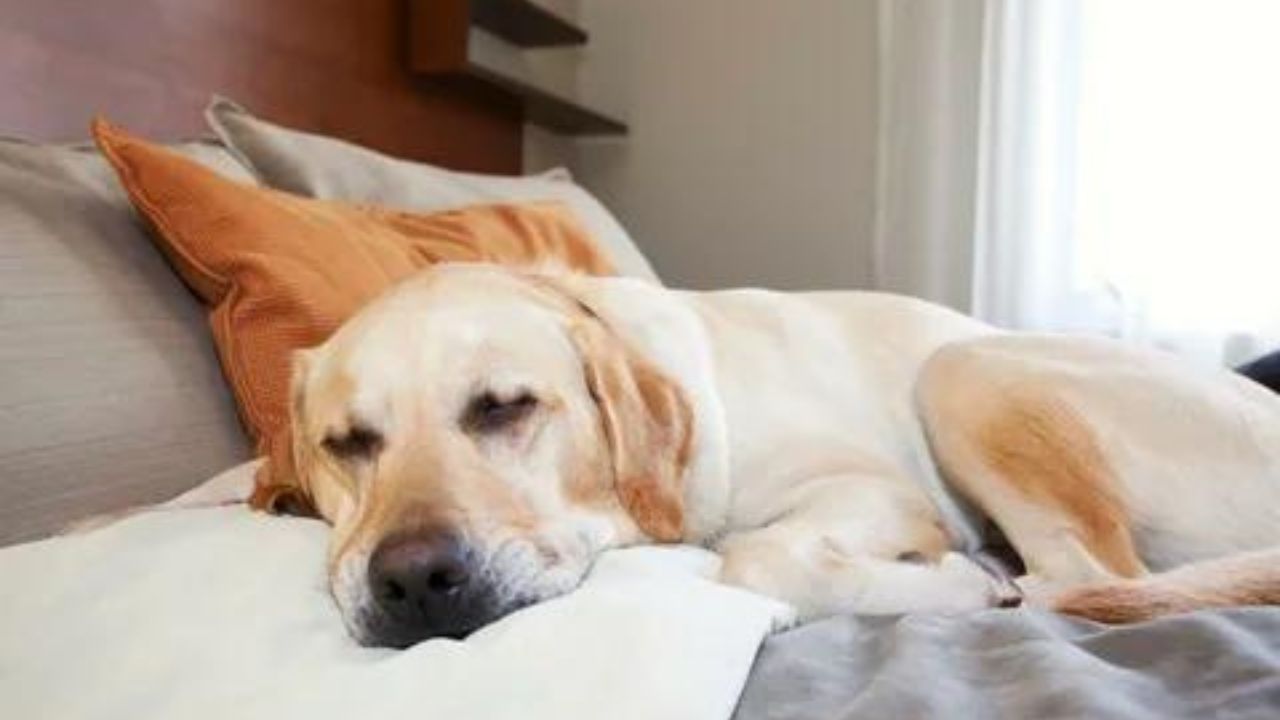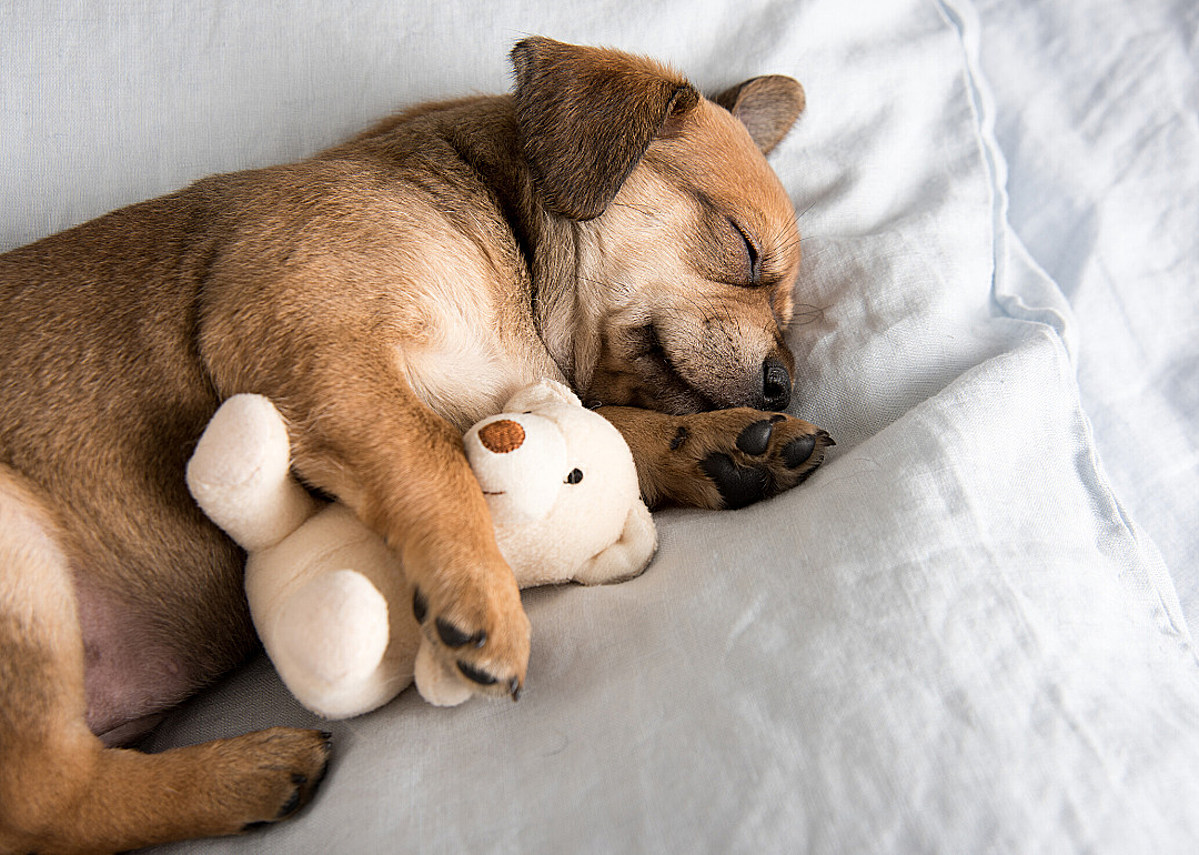
Anxiety can affect puppies just as it does humans, and it’s important to help them feel calm and secure, especially at bedtime. Anxious puppies may have difficulty falling or staying asleep, leading to behavioural problems and other health issues. In this blog post, we’ll discuss some tips on how to soothe an anxious puppy to sleep and when to seek professional help if necessary. Following these tips can help your puppy feel more secure and get a good night’s rest.
Identify the Causes of Anxiety in Puppies
Before we delve into tips on soothing an anxious puppy to sleep, we must understand the potential causes of anxiety in puppies. Here are some common reasons why your puppy may be feeling anxious:
Separation anxiety: Puppies may become anxious when left alone, as they are pack animals and prefer to be with their families.
Fear of loud noises: Puppies may become anxious or scared of loud noises like thunder, fireworks, or construction sounds.
Lack of socialization: Puppies not socialized during their critical socialization period may become anxious or fearful in new situations or around new people and animals.
Changes in routine: Puppies thrive on routine, and any significant changes to their daily routine, such as moving to a new home or feeding schedule, can cause anxiety.
By identifying the cause of your puppy’s anxiety, you can take steps to help them feel more secure and calm.
Tips to Soothe an Anxious Puppy to Sleep
Now that we’ve discussed some potential causes of anxiety in puppies let’s move on to tips on how to soothe an anxious puppy to sleep.
Create a Calming Environment
Use a crate or designated sleeping area: Providing your puppy with a designated sleeping area or crate can help them feel more secure and less anxious. Ensure the crate is large enough for your puppy to move around comfortably.
Provide a cosy bed: Soft, comfortable bedding can help your puppy feel cosy and secure.
Use a white noise machine: White noise can help drown out any distracting sounds that may be causing your puppy to feel anxious.
Use aromatherapy: Some scents, such as lavender, chamomile, or vanilla, are known for their calming effects on both humans and animals. You can use a diffuser or spray to infuse these scents into the air.
Provide Comfort
Use a calming touch: Gentle petting or stroking your puppy can help them feel more relaxed and secure.
Use a calming voice: Speaking softly and soothingly to your puppy can help them feel reassured and calm.
Offer a chew toy or treat: Chewing can help release tension and distract your puppy. Choose safe toys or treats for puppies and avoid anything that could be a choking hazard.
Play soothing music: Soft, calming music can help your puppy relax and fall asleep more easily.
Establish a Bedtime Routine
Establish a consistent sleep schedule: Puppies thrive on routine, so a consistent bedtime and wake-up time can help them feel more secure and less anxious.
Incorporate calming activities: Gentle play or a short walk can help your puppy relax and wind down before bedtime.
Avoid stimulating activities before bedtime: Avoid activities that may be too stimulating, such as playing rough or watching an exciting movie before bedtime.
By implementing these tips, you can create a peaceful and calming environment to help your anxious puppy fall asleep more easily.
However, sometimes, a puppy’s anxiety may be severe, and these tips may not be enough. If your puppy’s anxiety persists, you may need professional help.
When to Seek Professional Help
If your puppy’s anxiety persists despite your best efforts, seeking professional help is essential. Here are some signs that your puppy’s anxiety may be severe and that you should consult a veterinarian or a professional dog trainer:
- Your puppy’s anxiety is causing significant behavioural issues, such as destructive chewing, excessive barking, or aggression.
- Your puppy’s anxiety is causing them to avoid normal activities or causing significant distress.
- Your puppy’s anxiety interferes with its ability to eat, drink, or sleep normally.
- Your puppy’s anxiety is causing them to become sick or injured.
A veterinarian or professional dog trainer can help you develop a more comprehensive plan to help your puppy manage their anxiety. They may recommend behavioural training, medication, or other strategies to help your puppy feel more secure and relaxed.
Remember, anxiety in puppies is common, and with patience, understanding, and professional guidance, you can help your furry friend feel calmer and more relaxed.
Conclusion
In conclusion, anxiety in puppies can significantly affect their behaviour, health, and overall well-being. As pet owners, it’s crucial to understand the potential causes of anxiety in puppies and take steps to soothe and calm them, especially at bedtime. Creating a calming environment, providing comfort, and establishing a consistent bedtime routine can help your anxious puppy feel more secure and relaxed.
However, if your puppy’s anxiety persists despite your best efforts, it’s essential to seek professional help to address the issue. You can help your furry friend feel calmer and happier with patience, understanding, and the right support.








